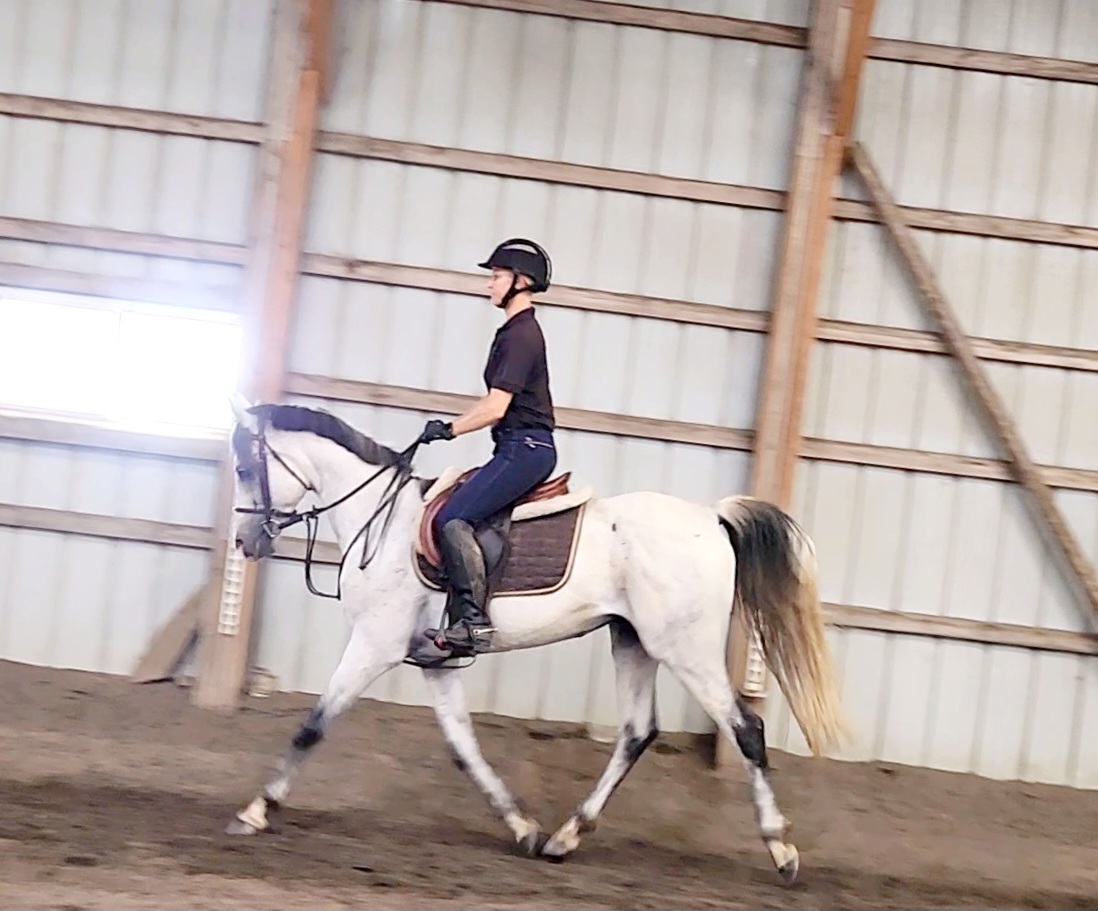I’m a planner, which means that I always try to be prepared for things that I can see on the horizon. With winter drawing near, I’m someone who likes to have my barn filled with hay for the cold season. The last thing that I want to worry about is trying to shop for more hay in the middle of winter, when prices go up and good quality hay gets harder to find.
The planning actually starts back in the springtime, because when the first cutting of hay is coming off of the fields, I’m trying to stockpile as much as I’ll need for the year in my barn. It’s not a fun job to unload and stack wagon after wagon of hay, but when it is only a task that has to be done once a year — well, it’s a job that I’m happy to get done!
Stocking up on first cutting hay from the same fields each year also helps me to be able to keep my horses’ diets consistent. I like that I know where my hay is coming from, and it also helps put my mind at ease, because I tend to not have problems with weeds or trash getting baled up in my horses’ forage.
Have you planned your winter hay purchases yet? Make sure to check out this article over at The Horse, which can help educate you on the different types of hay, the difference between hay cuttings, and how to conduct a basic evaluation of hay quality.
And then, make sure to check out the other headlines from This Week in Horse Health News, presented by Absorbine.
How to get rid of Rain Rot: Most horse owners have had to deal with a stubborn case of rain rot at some point or other — but what actually is rain rot? The condition is actually a common equine skin bacteria, which most frequently occurs in areas with heavy rainfall and high humidity, which can include the southern US during the winter season. Learn more about rain rot, and how it can be treated or prevented! [Practical Horseman]
When do horses need Vitamin E?: Does your horse have access to adequate pasture, or are they fed a primary hay-based diet in order to meet their forage requirements? And did you know that as the workload of a horse increases, so does their Vitamin E requirement? Horses that lack the proper amount of Vitamin E can suffer from symptoms such as muscle soreness and stiffness, and they can be slower to recover after an intense workout. [The Horse]
Four Rules to Help Prevent Winter Colic: When the temperatures start to turn cold, there are certain types of colic that are more likely to occur for equines. What are some steps that horse owners can take in order to help reduce the risk of colic during the winter season? Check out this list of tips to learn more. [Equus]
CHS, Inc. Issues a Voluntary Recall on Feed: CHS, Inc. has issued a voluntary recall on their Kountry Buffet feed that is for mature horses, cattle, goats and sheep, due to the feed having increased copper levels. The feed was manufactured in a facility in Oregon, and at this time there have been no illnesses or deaths reported at this time. [The Horse]




















